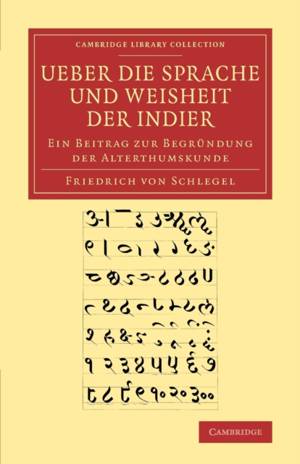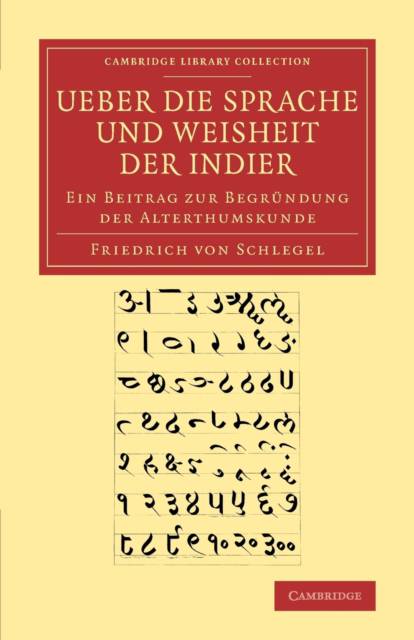
- Afhalen na 1 uur in een winkel met voorraad
- Gratis thuislevering in België vanaf € 30
- Ruim aanbod met 7 miljoen producten
- Afhalen na 1 uur in een winkel met voorraad
- Gratis thuislevering in België vanaf € 30
- Ruim aanbod met 7 miljoen producten
Zoeken
Ueber Die Sprache Und Weisheit Der Indier
Ein Beitrag Zur Begrundung Der Alterthumskunde
Friedrich Von Schlegel
€ 83,95
+ 167 punten
Omschrijving
Critic, poet and essayist Friedrich von Schlegel (1772-1829) was a leading figure of German Romanticism. Believed to be autobiographical, his unfinished novel Lucinde caused a scandal in 1799 because of its portrayal of a sexual liaison. After exploring the development of philosophy, Schlegel increasingly turned his attention to the study of Sanskrit and Hindu religious writings. This work on the connections between Sanskrit and Indo-European languages, first published in German in 1808, is regarded as an important early contribution to comparative grammar - it was Schlegel himself who introduced this term into linguistics. He was inspired by the example of comparative anatomy, and he also promoted the idea of family trees for languages. The Aesthetic and Miscellaneous Works of Frederick von Schlegel (1849), in English translation, is also reissued in this series.
Specificaties
Betrokkenen
- Auteur(s):
- Uitgeverij:
Inhoud
- Aantal bladzijden:
- 346
- Taal:
- Duits
- Reeks:
Eigenschappen
- Productcode (EAN):
- 9781108067867
- Verschijningsdatum:
- 20/03/2014
- Uitvoering:
- Paperback
- Formaat:
- Trade paperback (VS)
- Afmetingen:
- 140 mm x 216 mm
- Gewicht:
- 439 g

Alleen bij Standaard Boekhandel
+ 167 punten op je klantenkaart van Standaard Boekhandel
Beoordelingen
We publiceren alleen reviews die voldoen aan de voorwaarden voor reviews. Bekijk onze voorwaarden voor reviews.








